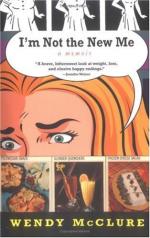The boy was silent; defiance and fear struggled in the dark eyes.
“You see, he’s an obstinate beggar,” said Denny, as though he had observed all necessary forms and could now get to business; and he drew the lash of the whip through his fingers. I am afraid Denny was rather looking forward to executing justice with his own hands.
The boy rose again, and stood facing that heartless young ruffian, Denny—it was thus that I thought of Denny at the moment—then once again he sank back into his seat, and covered his face with his hands.
“Well, I wouldn’t go out killing if I hadn’t more pluck than that,” said Denny, scornfully. “You’re not fit for the trade, my lad.”
The boy had no retort. His face was buried in those slim hands of his. For a moment he was quite still. Then he moved a little; it was a movement that spoke of helpless pain, and I heard something very like a stifled sob.
“Just leave us alone a little, Denny,” said I. “He may tell me what he won’t tell you.”
“Are you going to let him off?” demanded Denny, suspiciously. “You never can be stiff in the back, Charlie.”
“I must see if he won’t speak to me first,” I pleaded, meekly.
“But if he won’t?” insisted Denny.
“If he won’t,” said I, “and you still wish it, you may do what you like.”
Denny sheered off to the kitchen, with an air that did not seek to conceal his opinion of my foolish tender-heartedness. Again I was alone with the boy.
“My friend is right,” said I, gravely. “You are not fit for the trade. How came you to be in it?”
My question brought a new look, as the boy’s hands dropped from his face.
“How came you,” said I, “who ought to restrain these rascals, to be at their head? How came you, who ought to shun the society of men like Constantine Stefanopoulos and his tool Vlacho, to be working with them?”
I got no answer; only a frightened look appealed to me in the white glare of Hogvardt’s lantern. I came a step nearer, and leaned forward to ask my next question:
“Who are you? What’s your name?”
“My name—my name?” stammered the prisoner. “I won’t tell my name.”
“You’ll tell me nothing? You heard what I promised my friend?”
“Yes, I heard,” said the lad, with a face utterly pale, but with eyes that were again set in fierce determination. I laughed a low laugh.
“I believe you are fit for the trade, after all,” said I; and I looked with mingled distaste and admiration on him. But I had my last weapon still, my last question.
I turned the lantern full on his face; I leaned forward again, and said, in distinct, low tones—and the question sounded an absurd one to be spoken in such an impressive way:
“Do you generally wear clothes like these?”
I had got home with that question. The pallor vanished; the haughty eyes sank. I saw long, drooping lashes and a burning flush; and the boy’s face once again sought his hands.




